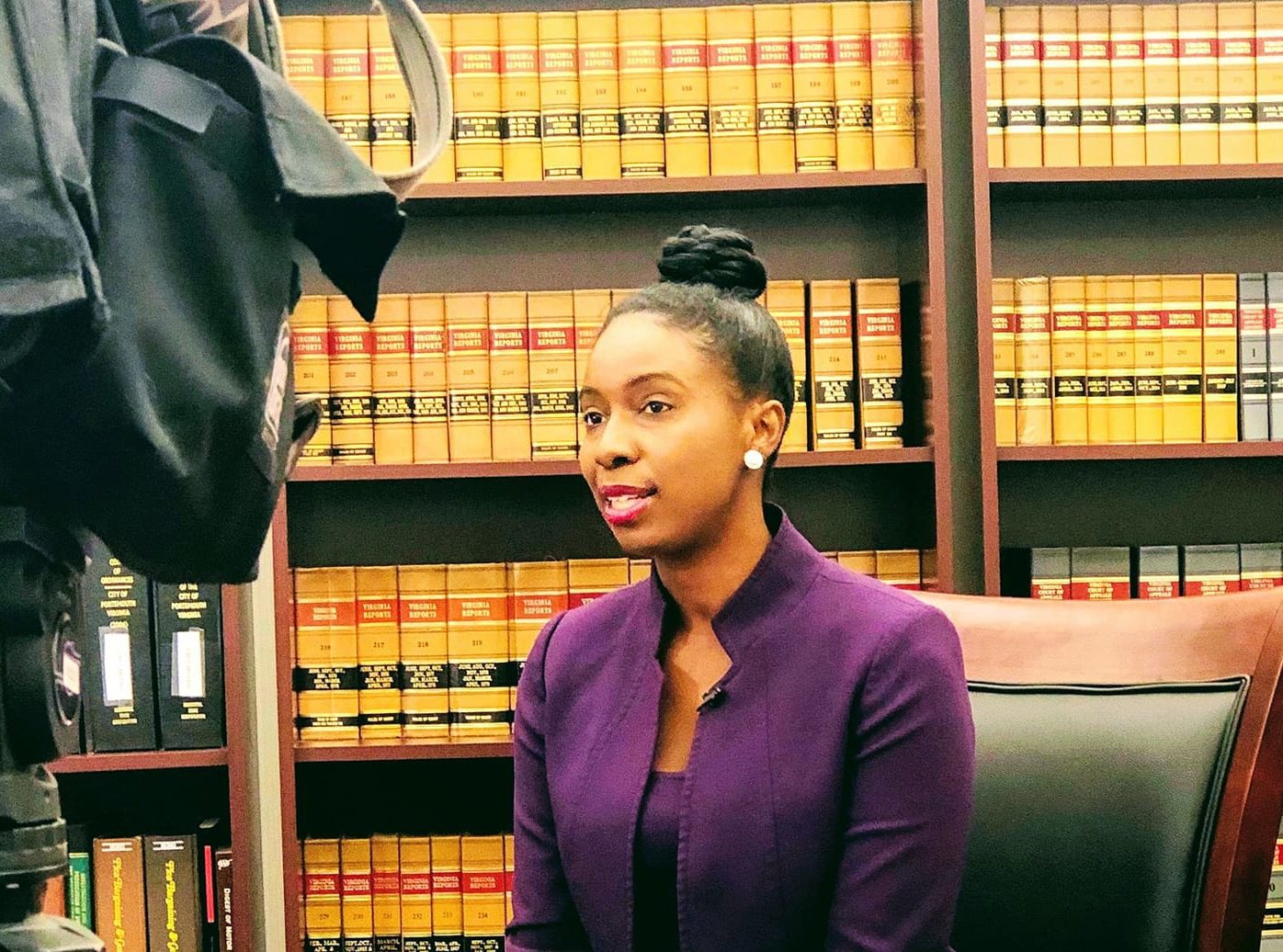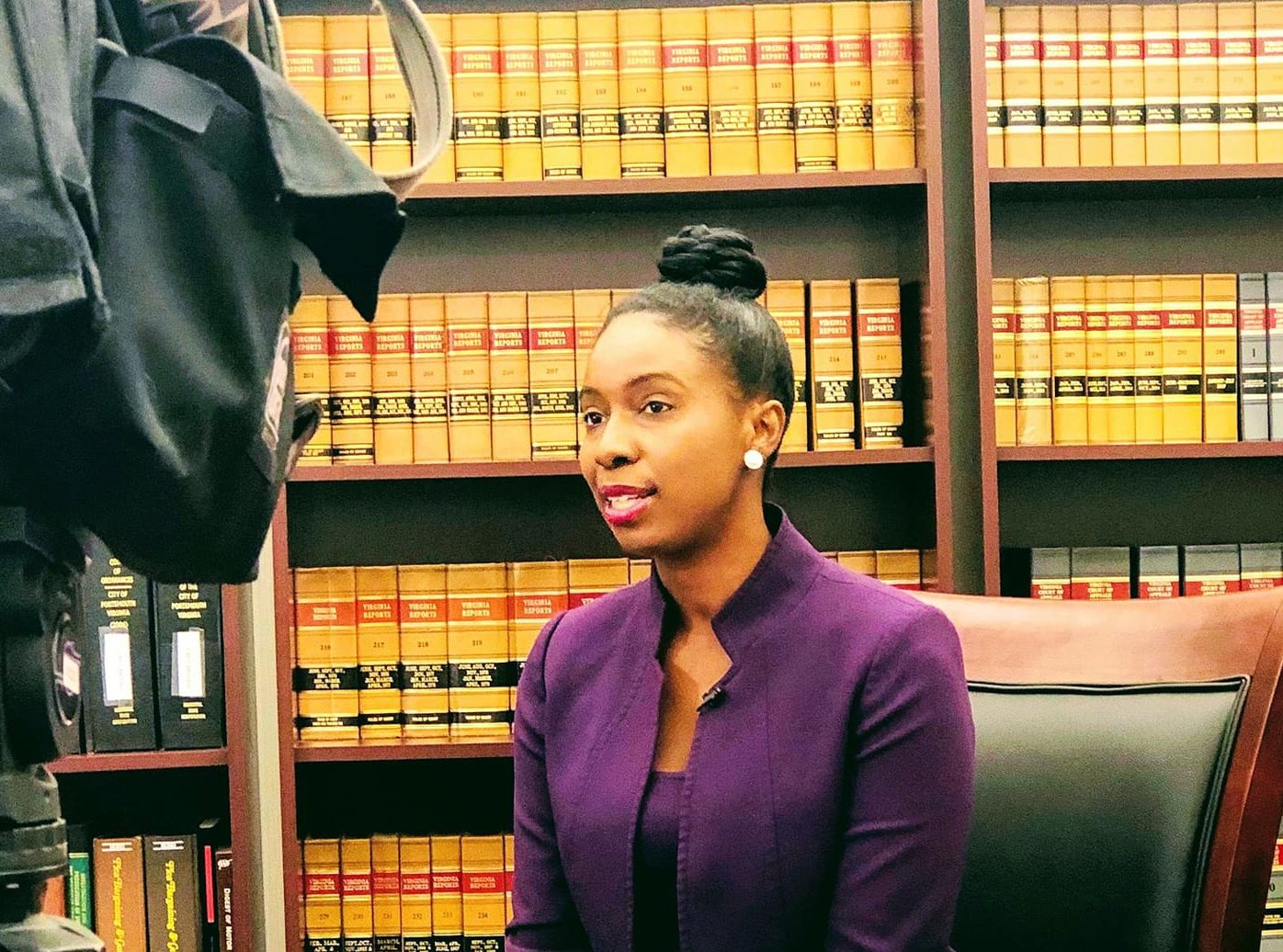Eleven Prosecutors Form a Progressive Alliance in Virginia
Their move breaches expectations of a monolithic law enforcement perspective, which in the past has helped DA associations push a punitive agenda.
Daniel Nichanian | July 28, 2020


This article originally appeared on The Appeal, which hosted The Political Report project.
Their move breaches the conventional expectations of a neutral and monolithic law enforcement perspective, which in the past have helped prosecutorial associations champion a punitive agenda.
Cracks are showing in the state associations that lobby on behalf of local prosecutors, and in the expectations that have empowered them to stymy criminal justice reforms in legislatures.
These associations thrive on the blurred line between their policy role and their status as professional membership organizations. This has meant that the punitive policies they defend come across as the natural offshoot of having prosecutorial experience. Amy Woolard, policy coordinator at Virginia’s Legal Aid Justice Center, regrets that lawmakers have long relied on the Virginia Association of Commonwealth’s Attorneys (VACA) to “weigh in on an issue, even go so far as to treat them almost as ‘the neutral expert in the room’ as to how criminal justice policy was unfolding on the ground.”
Earlier this month, 11 Virginia prosecutors breached this expectation of a neutral and monolithic law enforcement perspective that advocates for carceral norms. They formed a new association, the Virginia Progressive Prosecutors for Justice, with a stated intention of championing criminal justice reform in the legislature.
“I’m proud to be doing this work with my counterparts who acknowledge the harm our profession has done and now seek to correct it,” Stephanie Morales, the commonwealth’s attorney of Portsmouth, tweeted when announcing the launch.
There is no indication that the prosecutors who joined this progressive alliance plan to leave VACA. This may help the old association retain a privileged standing and its vocation to speak in the name of all elected commonwealth’s attorneys.
Still, the new coalition is the first formal manifestation within a state of the recent progressive gains in prosecutorial offices.
Around the country, candidates have won on reducing incarceration, signaling alternatives to the punitive consensus of recent decades and exposing the policy discretion that goes into being a prosecutor, but even in victory they have remained largely isolated within their own states.
Morales says this is the situation she found herself in when she first entered office in 2015, but that the political landscape has since changed. “Many other members of the legal profession were surprised and confused and thought I couldn’t be elected without the traditional law and order, tough on crime approach,” she told me of the reactions she encountered in 2015. “It has been amazing to watch the attention placed on the role of the prosecutor… The result has been the election of reform minded prosecutors who understand the need for decarceration.”
Virginia’s 2019 elections offered a new roadmap because of a wave of wins by candidates who positioned themselves against VACA’s preferences.
“[VACA] is down in Richmond every single day of session, and opposes reform after reform after reform,” Parisa Dehghani-Tafti told me during her campaign in Arlington County. She cited VACA’s opposition to decriminalizing marijuana. In neighboring Fairfax, Steve Descano told me he wished to build a “counterpoint” to VACA with which to head to Richmond and say, ‘Hey, legislators, you’ve heard this regressive view of the world. Let me tell you a progressive view of what justice should be.’” Both won, ousting incumbents, and have now joined the new coalition. Some advocates are calling for similar projects in other states, such as California.
The Virginia Progressive Prosecutors for Justice called for six legislative proposals in its inaugural statement. They include repealing mandatory minimum sentences and creating new opportunities for people with criminal records to expunge convictions.
“Coming together shines a light on our efforts, it gives us organizing principles, it gives us each backup and support, and most of all, it gives us a way to counter the narrative that safety and justice are opposite values,” Dehgani-Tafti told me after the launch.
Other progressive advocates in Virginia are planning bold moves on issues pertaining to the criminal legal system. 2020 was the first legislative session with Democrats fully in control of the state government since the early 1990s, and Virginia adopted a string of reforms, though their scope left some organizers wanting more. Woolard stressed that progressive prosecutors are just one segment of a broader “organized set of counterbalances of power” enabling a new agenda, such as groups of defense attorneys, and “an increasing visible presence of directly affected community members sharing their own experiences and ideas.”
Questions remain about the scope and strategies of the new progressive coalition of prosecutors.
For one, as long as its members remain in VACA, that may foster an asymmetry by which VACA continues to represent all of Virginia’s prosecutors, while the progressive group only represents a share of them.
Over the past 18 months, some district attorneys—Larry Krasner in Philadelphia and Tori Salazar in San Joaquin County, California—have outright quit their state’s prosecutorial associations, in part due to frustration that these groups were fighting reform while representing them. A Political Report analysis of media coverage of the Pennsylvania District Attorneys Association found that its statements can indeed get covered as the voice of prosecutors writ large.
In confirming she would stay in VACA, Dehghani-Tafti said the 2019 elections changed the balance of power within it, at least enough to stop it from endorsing some “tough on crime” policies it may have backed in the past. (Morales also said she would stay in VACA.) Woolard agrees that VACA has taken some “atypical positions” this year, like eliminating mandatory minimum jail time for people convicted of driving with a suspended license. She attributes that to “shifts within the association that made consensus on more punitively-oriented positions less of a sure thing.”
The state has 120 commonwealth’s attorneys, though the 11 in the new alliance represent nearly 40 percent of its population.
The new progressive coalition will face parallel questions about its own internal debates, and how these will shape and constrain the group’s positions and the scope of its ambitions.
Its members have expressed differing views in the past. The Virginian-Pilot points to Hampton Commonwealth’s Attorney Anton Bell as one prosecutor who has cultivated a “tough on crime” profile, and he offered a more qualified answer than his colleagues when asked by a lawmaker whether Virginia should reinstate parole. (Virginia stopped granting parole, with some exceptions, in 1995; there are now proposals to lift those restrictions.)
Other disagreements pertain to what prosecutors should do in their respective counties. During last year’s elections, Dehghani-Tafti and Descano vowed to not prosecute marijuana possession, a promise they then implemented; Amy Ashworth, who won in Prince William County and has also joined the new alliance, told me that adopting such a declination policy would violate the oath of office. (Morales and Norfolk’s Greg Underwood had already adopted policies of declining marijuana cases in Portsmouth in 2019.) Dehghani-Tafti and Descano both pledged to not seek the death penalty, while Ashworth would not rule it out. Ashworth said she backed repealing the death penalty and at least decriminalizing marijuana, and prosecutors’ views on statutory changes may be more pertinent to their statewide lobbying. That said, in Virginia as elsewhere, it is when prosecutors have made use of their local discretion that they have found themselves most targeted by other officials, and most isolated.
I asked Morales how she would characterize the common denominator of those prosecutors who are joining the progressive alliance. “We are unified around transformative change in this moment and far beyond,” she said. “We will not tire.”
Woolard makes the case that an effective transformation of the state’s criminal legal system will require that prosecutors make room for other groups, and take steps to diminish their own clout and authority.
This mirrors the demand of many Black Lives Matter protesters that the scope and resources of the criminal legal system be reduced, and not just rearranged. It remains rare, though no longer unheard of, for prosecutorial candidates to say they will support shrinking their office’s budgets.
“A true shift in the profession—whether from VACA or the new progressive prosecutor group—means that prosecutors will not only have to accept, but advocate for a diminution of their own power,” Woolard said.
The article has been updated with comment from Stephanie Morales.


